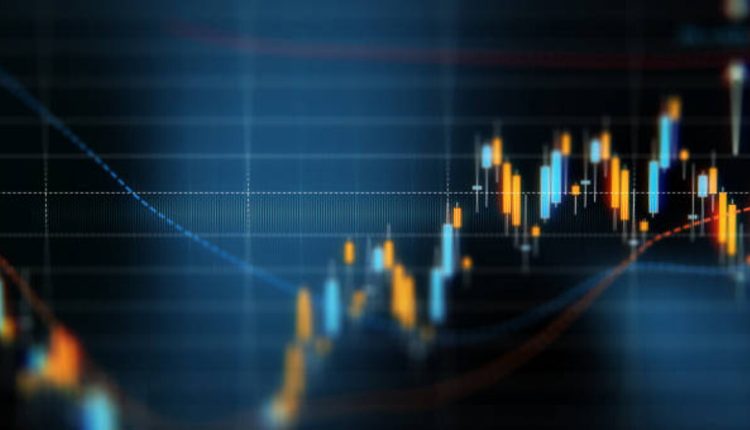Forex (Foreign Exchange Market) is the world’s largest financial market and trades a staggering USD 5 trillion daily. Since it operates without regulation or price controls, its prices are set based on supply and demand alone. The actual Interesting Info about forex robot.
Forex is a 24-hour global network, shutting only on weekends. Additionally, its leveraged nature enables traders to trade currencies with much larger sums than they possess in their accounts.
It’s the largest financial market in the world
The forex market is an international network of financial centers that trade 24 hours a day, providing investors with opportunities to take advantage of fluctuations in currency prices. Investors can profit from fluctuations caused by economic news and political events; central banks also influence this market through monetary policy decisions or exchange rate regime-setting measures; corporations also trade currency as part of global business operations or to reduce risk.
Forex markets do not close for trading over weekends like stocks or bonds do; therefore they provide access to traders of all stripes around the world and can act as an ideal gateway for beginners wanting to explore advanced markets such as stocks. Furthermore, forex tends to be less punishing and more forgiving of early mistakes compared to stock trading markets.
It’s quoted in pairs
Forex (foreign exchange market) is an international marketplace where currencies are continuously bought and sold for a profit. Currencies are quoted in pairs to represent this process – each pair represents the purchase and sale of one currency against another – with each price for a pair displayed as base currency (first listed) divided by quote currency (second). Currency pair quotes typically follow this format: “XXX/YYY”, where each XXX represents ISO 4217 three-letter codes associated with each currency pair in question.
The seven most traded currency pairs include USD, EUR, GBP, JPY, AUD, and NZD – these form the core of all forex trading activity and tend to experience less volatility than others. Traders should be wary, however, as prices can react adversely to central bank interventions such as quantitative easing or rate hikes which can have significant ramifications on an economy and cause increased volatility.
It’s 24 hours a day
Forex markets operate 24 hours a day, five days a week to accommodate traders from different parts of the globe who trade currencies on this global market. Knowledgeable traders who understand how currency trading works may find success making big bucks in this highly leveraged financial marketplace.
Forex trades take place over the counter, while traders may also utilize automated systems to execute orders at certain times of day – although leaving these unsupervised can be risky. Forex markets usually fall into four distinct sections: Sydney, Tokyo, London, and New York where low liquidity may lead to wider spreads or incorrect prices that trigger pending orders.
It’s a leveraged market
Forex markets are highly leveraged, meaning traders can borrow money to increase the size of their trades. While this can result in large gains if markets go in one’s favor, losses become magnified if a move goes against them. Therefore, it’s crucial that traders carefully weigh the risks and rewards of potential trading strategies before making any definitive decisions about trading them.
All financial markets are sensitive to geopolitical events, but forex trading stands out due to being an international marketplace. Currency prices reflect sentiment regarding a country and may react in real-time when news comes of political instability in key nations or military actions being taken against those nations.
The forex market operates 24 hours a day and trading volumes can reach staggering heights. Institutional traders make trillions each day from this massive industry, while individual retail speculators have also become an important part of this market, acting similarly to institutional traders in recognizing potential price movements and trading in response to them.
It’s a speculative market
Forex trading is highly speculative and prices can often be driven by various external forces – political events, business market conditions, and natural disasters being just some of these drivers. Furthermore, central banks may influence currency prices through policies like quantitative easing which increase supply resulting in reduced demand causing prices to decrease over time.
An individual trader can speculate on the future value of currency pairs by selling one and purchasing the other – this is known as taking out a long position. To make money off this strategy, one must hope that it will be appreciated in the future.
Forex traders rely heavily on technical and quantitative analysis to predict currency prices, yet an over-reliance on price-based analysis can be risky and limit profits. Therefore, traders should employ both technical and fundamental analyses to maximize their chances of success – this includes understanding the basic rules of the market as well as how to interpret technical charts.
It’s not regulated
Forex (Foreign Exchange Market, also referred to as FX or Foreign Exchange) is an over-the-counter global market in which dealers purchase and sell currencies to determine their exchange rates, including banks, central banks, commercial companies, investment management firms, and individuals trading currency pairs. Unlike securities transactions, however, forex services do not have set rules regulating how much a dealer charges an investor; so end clients need to be wary if a firm claims their forex trades are commission-free.
Retail speculative traders represent an expanding sector of the forex market and may become vulnerable to irregularities, scams, exorbitant fees, and high leverage levels offered through high leverage levels. Regulation in the US by the CFTC of forex brokers can be inadequate – traders should seek out those regulated by the National Futures Association (NFA), which adhere to stringent standards of fairness and transparency within the marketplace.


